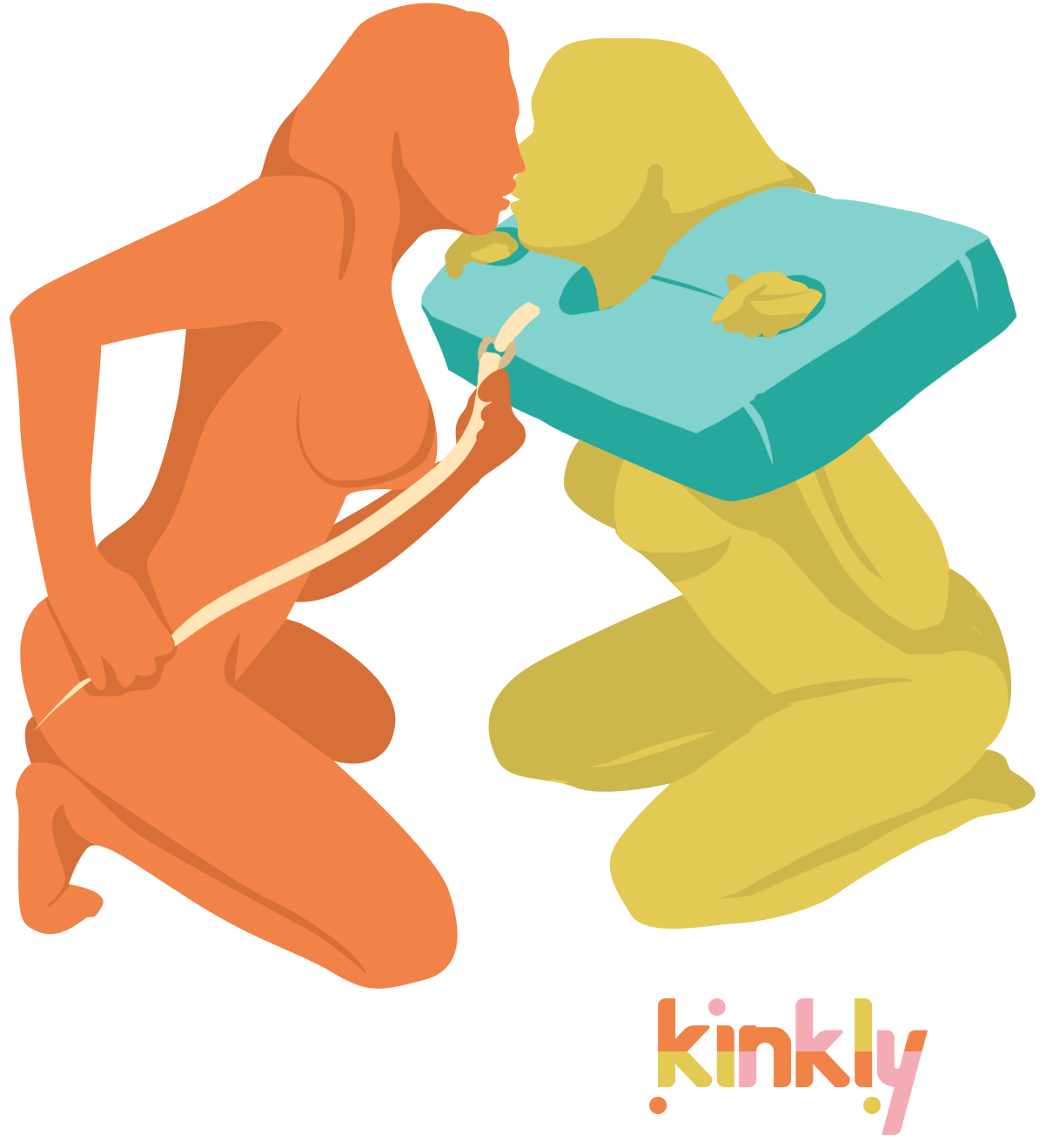I talked recently about why I identify as "queer rather than lesbian," inspiring one of my readers to ask this question:
Is it wrong or cissexist to identify as a lesbian if you’re dating a trans* person?
What Is Cissexism?
To help out my readers who may not know what cissexism is, I’m going to start there. Kinkly’s dictionary defines cisgender as a "term used to refer to people whose gender identity aligns with the gender assigned to them at birth." In other words if, when you were born, the doctor said "It's a girl!" and you feel like and identify yourself as female, you're probably cisgender.
Cissexism, therefore, is like racism or sexism, where the social and political structures in place show a preference toward one group of people over others. In this case, that preference is for people whose gender identity aligns with the gender they were assigned at birth.
Cissexism can arise in many situations, but it is most often seen as transphobia, or in a prejudice against trans* people. The hardest part about cissexism, like racism and sexism, is that it’s often subconscious and so deeply ingrained in our brains that we don’t realize we’re doing anything wrong.
One of the ways that all "isms" present themselves is in our language and the terms with which we identify ourselves and others, especially when it comes to sexuality. "Gay," "lesbian" and "bisexual" are all great terms that have value in many ways, but they come with a history of an assumed gender binary that excludes trans* people.
Terms like "queer" and "pansexual" tend to encompass a broader gender identity and sexual orientation spectrum.
While I still will often refer to myself as a "lesbian," "dyke," "femme," or other similarly descriptive term, I officially identify as queer because I typically date people who don’t identify as either female or male, but are instead genderqueer, which fits somewhere in the middle. Additionally, while I present very feminine, my gender identity is also queer, because I don’t feel like my gender is what is traditionally attributed to "female."For me, the term "lesbian" lacks the complexity that is my sexual orientation and gender identity, so I use the more encompassing term "queer."
Does that mean I think it's cissexist to identify as a lesbian? The answer to that is as complicated as language itself.
The term "lesbian" is not inherently transphobic, but it often can take on that connotation in practice. "Lesbian" is still often defined as two women dating or sleeping with each other, so it can have cissexist implications if one of the partners in a relationship does not identify as a woman or if people narrowly define "women" as only pertaining to ciswomen.However, "lesbian" doesn’t have to exclude trans and genderqueer people. I know plenty of lesbians who are married to cismen, trans men, trans women and every gender in between.
It’s all in the way you use a term. Language's ability to adapt is glorious. So, as cultures evolve to see gender as a spectrum rather than a binary, the terms we use also evolve beyond their traditional binary assumptions.
Because language is so subjective and ever-changing, it’s difficult to choose one word or words to describe something as complex as sexuality or gender. The reality, however, is that conversations or writing often require some terminology we can all agree on.
So, how do you choose which label to use for yourself and others?
With others, it’s easy: ask them which labels they prefer to use. How to ask people about their identity/preferred label(s) is a column in and of itself, but the basic principle is to be respectful and never make assumptions based on preconceived notions of gender or sexuality. When you don’t know someone’s gender or the genders of their lover(s), it’s usually safe to use the gender-neutral singular "they" or to avoid pronouns or gendered terms altogether.When choosing a label to use for your own sexual orientation or gender identity, keep these things in mind:
- Historical Context: Terms like "tranny," "dyke," "fag," or "queer" may feel empowering to some, but are still hard for others who are used to their historically offensive/abusive context.
- Common Usage: How is the label/term commonly used? What is the traditional meaning of the word?
- Your Sexual Preferences: If you are a man who only likes to date and sleep with men, calling yourself a lesbian may not be the best, most accurate choice for you.
- Your Gender Identity: If you don’t identify as a woman, the traditionally female connotations of "lesbian" may not feel right on you.
- Your Politics and Lifestyle: "Queer," as a term, can sometimes (but definitely doesn’t have to) include more radical leanings against heteronormativity, such as BDSM practices, polyamorous relationships, etc.
- Personal Comfort Level: You want a title or name you’d bestow upon yourself, something you’d proudly wear on your lapel.
- Your Current Mood: Whether I refer to myself as a lesbian, dyke or queer often depends on how I’m feeling at that moment, so feel free to mix it up, no need to pick just one.
I once met a person who referred to themself as a "no." My writer mind was blown at the term for not having a term, a label for no label at all.
Language is a complicated thing, but being conscious of the terms you use to define yourself and others can help remove stigmas and be more inclusive of others.
Now, go forth and describe yourself.
With love and light,
Queerie Bradshaw

















